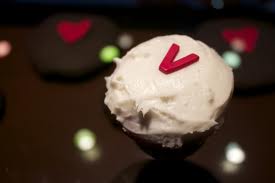New Scrutiny of the Dangers of Mixing Alcohol and Painkillers
 Monday, February 27, 2012 at 5:30PM
Monday, February 27, 2012 at 5:30PM from scientificamerican.com
The mystery of Whitney Houston's death will not be solved for several weeks, as the Los Angeles County Coroner's Office awaits a full toxicology report. But many experts speculate that the singer's tragic demise involved a deadly cocktail of alcohol and prescription drugs, including Xanax.
Houston wouldn't be the first star to suffer such a fate: Heath Ledger, Michael Jacksonand Anna Nicole Smith are all thought to have died in part from prescription drug overdoses, which can involve painkillers, sedatives and stimulants, often in combination with alcohol. But the problem extends far beyond Hollywood. In 2007 some 27,000 Americans died from unintentional prescription drug overdoses—making prescription drugs a more common cause of accidental death in many states than car crashes are.
A slippery slope
Although sedatives are thought to have played a role in Houston’s death, most prescription drug overuse involves opioid painkillers. Approximately 3 to 5 percent of people who take pain medication eventually end up addicted, according to Nora Volkow, director of the National Institute on Drug Abuse, an arm of the U.S. National Institutes of Health. And "individuals who have a past history of a substance-use disorder—from smoking, drinking or other drugs—are at greater risk," she says. Addiction to other classes of prescription drugs such as sedatives, stimulants and sleep medications is thought to be less common—but it occurs, and even users who do not become compulsively addicted can, over time, become physically dependent and experience intense withdrawal symptoms when their prescriptions run out. They might also develop drug tolerance, the need to take higher doses over time to feel the same effects.
Other people start taking prescription drugs just to get high, perhaps in part because they have the (false) notion that prescription drugs are safer to experiment with than are illicit drugs. "They take them for recreational purposes, and then a portion of them find 'Wow, I can't stop using this,'" says Jon Morgenstern, director of addiction treatment at the Columbia University Medical Center.
It is unclear how Houston developed her substance problems, but like many other addicts, she eventually began mixing drugs along with alcohol. Many prescription drug users who are not addicted or dependent consume alcohol concurrently as well, despite medical advice against it. According to a 2008 study published by researchers at Brown University and the University of Rhode Island, 60 percent of people who regularly take prescription drugs known to interact with alcohol also drink, and 5 percent have at least three drinks in a row when they do.
Prescription drugs and alcohol can be a dangerous combination, Volkow says. Painkillers and booze are perhaps the worst to mix, because both slow breathing by different mechanisms and inhibit the coughing reflex, creating "a double-whammy effect," she says, that can stop breathing altogether. Alcohol also interacts with anti-anxiety drugs (including Xanax), antipsychotics, antidepressants, sleep medications and muscle relaxants—intensifying the drugs' sedative effects, causing drowsiness and dizziness, and making falls and accidents more likely. A 2010 study published in the Canadian Journal of Public Health reported that automobile drivers were much more likely to weave and speed if they were under the influence of drugs like Xanax in addition to alcohol than if they had consumed alcohol alone. And according to a 2011 study published in the AmericanJournal of Therapeutics, people who visited an emergency room after taking too much of the sleeping drug Ambien were more than twice as likely to end up in an intensive care unit if they had also consumed alcohol, compared with Ambien-takers who had not had anything to drink.


